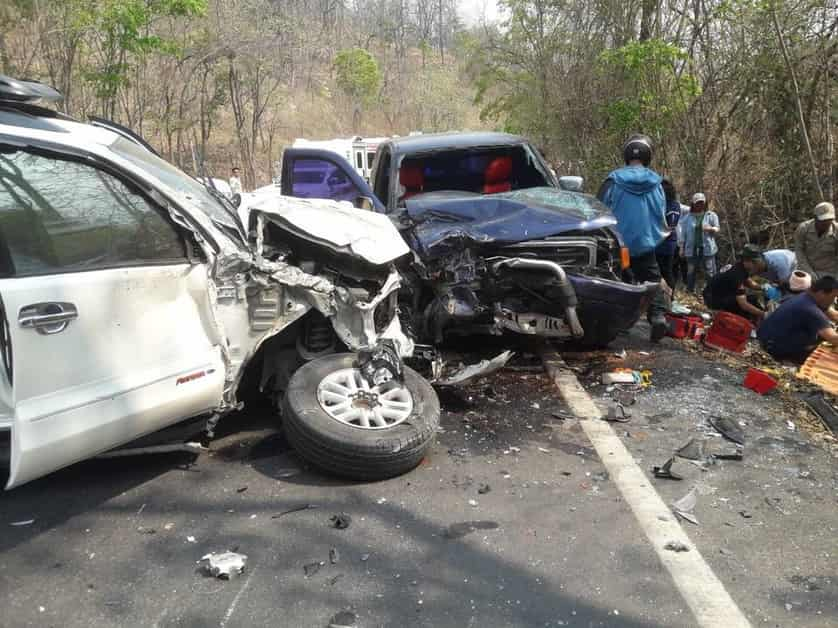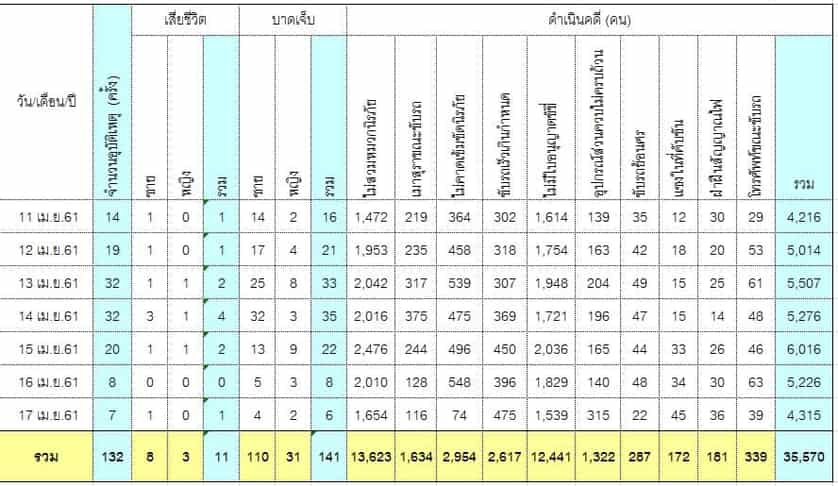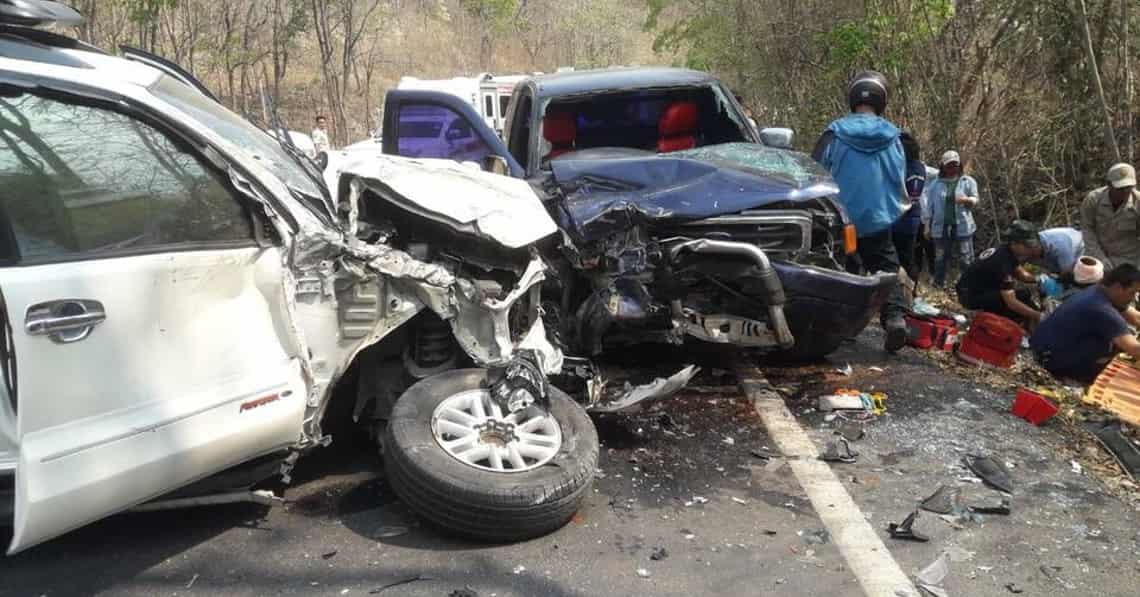As Songkran comes to a close, people recover from hangovers, repair their water damaged phones and reluctantly get back to work as the authorities pick up the pieces around them. In Chiang Mai alone, over 100 tonnes of trash that was dumped around town was collected as a record number of revelers descended onto the city, giving way to a total of 132 road accidents over the festival period. Reports across the country exclaimed in horror that the total number of accidents increased again this year, citing the famous buzz words ‘seven dangerous days’ to describe the havoc on Thai roads during the festival, mainly attributed to wet roads, thoughtless water throwing, drink driving and drowsiness.

But are these days really any worse than any other? Prime Minister Prayuth Chan-o-cha vowed on 17th April to introduce more stringent measures over the Songkran period to help curb the ‘carnage on the roads’. Despite promising to reduce the figures, the Junta leader has been left eating humble pie as in spite of the increased number of checkpoints, road traffic accidents and deaths on our roads did increase.
The ‘seven dangerous days’ was a buzz phrase created by the authorities a decade or so ago to highlight the dangers on the roads during Songkran. Perhaps it was coined during the era when Songkran really was dangerous, but when you look at the numbers today it is quite clear to see that the ‘seven dangerous days’ are no more dangerous than any other day of the year on Thailand’s roads. Actually, they’re safer.
From 11th – 17th April 2018, there were a total of 3,724 road accidents reported across the country. Those accidents left behind them a wake of destruction, injuring 3,897 people and killing 418, according to the latest figures Road Safety Centre. In comparison to last year, 390 people died on the roads and 3,808 people were injured during the same period.
Chiang Mai came up top again in the highest number of injuries at 141 and 11 deaths, but was overtaken by Nakhon Ratchasima this year which recorded a total of 20 deaths from road accidents.

According to the Deputy Interior Minister Sutee Markboon, the main cause of fatal crashes this year was drink driving (40%) followed by speeding (26.5%).
Almost 80% of all accidents, fatal or not, involved motorcycles.
The carnage on the roads is not hidden from view, which is admirable for a government who often likes to paint themselves in the best light. Even the Deputy Prime Minister Prawit Wongsuwon, who was put in charge of traffic and accident problems this year, said he needs to work harder next year, if he makes it that far.
Thailand’s roads are currently ranked first or second in the world for most lethal depending on your source, referencing WorldAtlas and World Health Organisation (WHO) respectively.
According to the WHO, an average of 24,000 people die on Thai roads every year, so let’s break down this number and compare it with the ‘seven dangerous days’ of Songkran.
If 24,000 people die a year, that works out at 461.5 deaths per week on average. This year’s Songkran saw 418 deaths, a considerable reduction of the weekly average. So on face value, the ‘seven dangerous days’ of Songkran this year were actually quite the opposite…statistically at least.
Therefore, either the ‘seven dangerous days’ is a total myth, or a success story in that the government’s scare tactics, awareness campaigns, clampdowns and PR have actually paid off. Of course, any death on the road is a tragedy, but if Songkran sees fewer deaths on the road than the weekly average, then that is something to crow about and perhaps learn from to use as a campaign throughout the year.
This year saw more accidents than last year, despite more than 2,000 checkpoints being set up across the country with over 60,000 police officers working the beat. Over 1 million vehicles were checked, with almost 150,000 people arrested or fined – mostly for not wearing crash helmets or driving without a license.
One can only wonder how safe the roads would be if the same efforts were made year round, because right now, each week is just another seven deadly days on Thailand’s notorious roads, and we should stop ignoring it.
